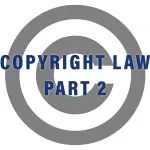Copyright Law on Amazon – Part 2
The Digital Millennium Copyright Act (DMCA) did a lot to change the way copyright laws operate on the online marketplace when the law was introduced in 1998.
Amazon’s laws and suspension guidelines make a lot of sense once you analyze the way in which the DMCA frames online copyright law.
 We now understand that the DMCA offers a whole host of protections for service providers such as Amazon in the case that users on the platform break the law. Amazon’s end of the bargain simply asks that the company adhere to a number of rules and regulations in order to meet those protections, which explains why Amazon is so ruthless when it comes to suspending the accounts of Amazon sellers. Today, we’ll take a look at how the DMCA has impacted the world of online law and what some of the pros and cons of the law are as it’s currently constructed.
We now understand that the DMCA offers a whole host of protections for service providers such as Amazon in the case that users on the platform break the law. Amazon’s end of the bargain simply asks that the company adhere to a number of rules and regulations in order to meet those protections, which explains why Amazon is so ruthless when it comes to suspending the accounts of Amazon sellers. Today, we’ll take a look at how the DMCA has impacted the world of online law and what some of the pros and cons of the law are as it’s currently constructed.
Impact
When the DMCA was first unveiled, the Internet was in its infancy. The World Wide Web had launched in 1990, and the DMCA was signed into law in 1998. The DMCA was the first major piece of law that dove into the online realm. While there have been adjustments made to online law since then, none have made an impact felt quite as much as the DMCA itself.
However, the DMCA wasn’t lauded by everyone in the law field at the time of its passing. Some praised it while others found flaws within its pages. In fact, you’ll find it’s easier to get an opinion on why the DMCA fails as opposed to why it works. Let’s examine both arguments.
Pros of the DMCA
The DMCA helps a couple of parties in particular: the service providers and the rights-holders. The DMCA cleared service providers of any legal wrongdoing on their platforms so long as they followed a list of fairly straightforward guidelines. It also gave these platforms a lot of power to strike down those who they suspected did not follow the law, and gave them enough power that they didn’t need solid arguments to do it. This is why Amazon can suspend its sellers even if those sellers didn’t actually do anything wrong. If you’re Amazon, the DMCA was a life-saver.
And because these corporations were not subject to legal liability every time a user broke the law, these companies were able to grow into these massive behemoths that they are today. In 2008, Wired hailed the DMCA at its 10th anniversary, saying “[b]logs, search engines, e-commerce sites, video and social-networking portals are thriving today thanks in large part to the notice-and-takedown regime ushered in by the much-maligned copyright overhaul. A decade ago, when the DMCA was enacted, these innovations were unheard of, embryonic or not yet conceived. Now, Google has grown into one of the world’s largest companies, and its video-sharing site YouTube has left an enduring mark on public discourse.”
The DMCA is also a net positive for rights-holders (in theory, that is. We’ll get to this in a second). Since service providers like Amazon are pretty generous with their suspensions, rights-holders don’t have to live in fear that their material is being stolen on the web. Companies are always going to err on the side of caution and protect their assets, which also protect those who hold the rights. Supporters of the DMCA will argue that the act brought copyright into the 21st century and that it closed loopholes that infringers could use against rights-holders.
Without the DMCA, Amazon in its current form simply wouldn’t exist. That certainly counts as a positive for Amazon sellers, who count on their businesses for their personal income. But that doesn’t mean the DMCA isn’t without its flaws.
Cons of the DMCA
The DMCA has come under fire from both rights-holders and everyday users for either being too strict or for not being strict enough. It seems that the system simply can’t please everybody. Rights-holders argue that their material is still being stolen. According to IFPI in late 2018, 38% of consumers around the world still listen to pirated music. And that’s just the percentage of people who openly admitted to breaking the law.
However, we know that Amazon accounts get suspended every day for supposed infringements that didn’t happen. That’s why Amazon Sellers Lawyer exists and why we create Plans of Action for suspended sellers. If this wasn’t a problem, we wouldn’t be here.
So what gives? In June of 2016, CPIP argued that the “’chronic, persistent, and pervasive’ infringement that [professor Bruce] Boyden described continues, with stolen copyrighted works popping up on sites almost immediately after being taken down. Google Search—one product of one company—has received nearly 90 million takedown notices this month alone. The situation has gotten so bad that last week a long list of artists, including Paul McCartney and Taylor Swift, signed a digital petition to bring attention to a broken DMCA system that allows companies like YouTube to benefit from infringement at the expense of songwriters and artists.”
Simply put, the DMCA could use a fresh coat of paint. According to the popular YouTube channel CrashCourse in its video IP Problems, YouTube, and the Future: Crash Course Intellectual Property #7, the four safe harbors are out od date considering “Congress came up with these categories in 1998, which is like 80 years ago in Internet years. The DMCA doesn’t fit neatly with new categories of online services, including peer-to-peer sharing, torrents, and cloud storage.”
Additionally, websites simply see too many infringement notices to keep up with all of them. In 2015, Google had nearly 10 million takedown notices per week. That number has no doubt gone up since then.
When a takedown notice is sent, companies often attack only the specific instance requested in the takedown notice rather than taking care of all material similar to the takedown notice as well. This leads to removed content simply being reposted elsewhere relatively quickly. This helps explain why illegal movie streaming websites can continue to flourish; if a specific movie gets taken down, the website will simply put it up somewhere else with a different URL.
That system doesn’t exactly work for Amazon sellers in the same way, since Amazon sellers have a reputation to uphold in conjunction with their business name and they wouldn’t have the same audience or consumer base if they kept moving around from username to username while listing illegal content amidst a vicious cycle of suspensions.
Because the takedown system isn’t very fast compared to the volume of takedown notices that service providers receive, providers aren’t able to be as thorough as they’d like to be either. This is why Amazon accounts can get suspended from competitors sending notices to Amazon simply to remove competition or for other nefarious reasons. This and similar problems crop up on other platforms too. Companies will request videos be taken down from YouTube for being too critical of their product and will call it a copyright infringement, for example. YouTube might not have the time to determine whether the claim is credible and might just remove the video anyway.
The problem is, the safe harbors frequently say that as long as the company isn’t aware of any wrongdoing when infringing material is posted on their website, they won’t get into legal trouble. This causes a lot of problems for those that would like to sue major companies for hosting infringing content, because it’s very difficult to prove that Amazon or other service providers have knowledge of specific instances of infringing material being present. This encourages the service providers to move slowly when sifting through takedown notices.
Unfortunately, larger companies who use these service providers have more power simply because they have more people who can devote resources to these legal issues than smaller companies can. On Amazon, this takes place in the form of larger sellers bullying smaller sellers off of the platform, and all smaller sellers are able to do in response is ask Amazon for reinstatement through a Plan of Action.
Copyright laws on Amazon: Conclusion
The DMCA certainly has its weaknesses. In 2016, the United States Copyright Office even asked the public for feedback on the act and how it could be improved. As the complaints continue to mount, it appears as though the Copyright Office does have some interest in tackling these problems and finding solutions.
Of course, it’s important to remember that Amazon mostly exists in its current form because of the DMCA. While the law might give the company a lot of power, it also allows the company to thrive and provide a platform for Amazon sellers. It’s a double-edged sword, to be sure.
And remember, if you ever find yourself receiving a notice of suspension from Amazon, know that a well-crafted Plan of Action can save your skin and get you back into business on the online marketplace.
 Anders is a content creator for Rosenbaum Famularo, P.C., law firm behind AmazonSellersLawyer.com.
Anders is a content creator for Rosenbaum Famularo, P.C., law firm behind AmazonSellersLawyer.com.
Anders will be earning his degree in journalism from Hofstra and has five years of professional journalism experience. He has written for numerous online and print publications including SB Nation and The Hofstra Chronicle.
